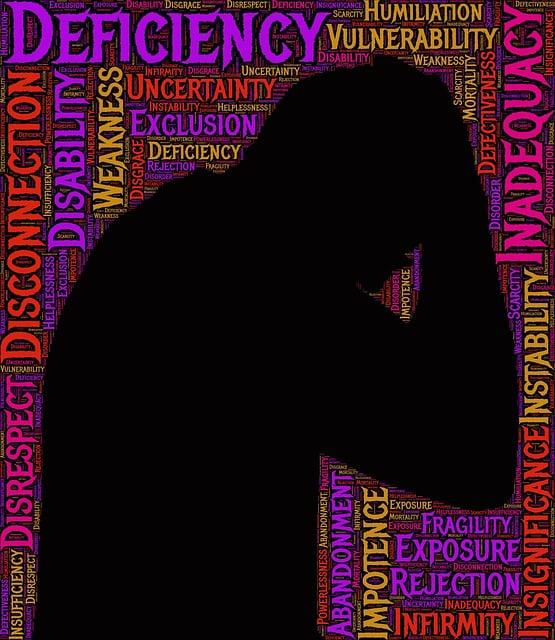Centennial Trauma Therapy provides a revolutionary approach to crisis intervention by addressing intergenerational trauma and unhealed wounds. Using evidence-based methods like CBT and EMDR, they offer immediate relief while laying the groundwork for long-term healing and resilience through mindfulness practices, emotional regulation techniques, and personalized self-care routines. Public awareness campaigns play a crucial role in normalizing conversations around mental health and trauma, reducing stigma, and encouraging help-seeking behaviors.
In today’s fast-paced world, effective crisis intervention strategies are vital for supporting individuals facing intense emotional distress. This article guides readers through essential aspects of crisis intervention, laying a robust foundation with ‘Understanding Crisis Intervention’. We explore innovative approaches like Centennial Trauma Therapy, offering hope and healing for deep-rooted issues. Additionally, ‘Implementing Evidence-Based Strategies’ provides practical tools, empowering professionals to navigate crises effectively. Discover how these methods can revolutionize support systems and foster resilience.
- Understanding Crisis Intervention: A Foundation for Effective Support
- Centennial Trauma Therapy: Unlocking Healing Paths for Deep-Rooted Distress
- Implementing Evidence-Based Strategies: Practical Tools for Crisis Intervention Guidance
Understanding Crisis Intervention: A Foundation for Effective Support

Crisis intervention is a critical aspect of mental health support, offering immediate and targeted assistance during moments of severe distress or trauma. At its core, it’s about providing a safe space for individuals to process their emotions, gain coping strategies, and regain a sense of control. Centennial Trauma Therapy emphasizes understanding the underlying causes of crisis, which often stem from unhealed wounds or prolonged stress, as these can manifest in various ways, affecting both mental and physical well-being.
Effective crisis intervention requires a nuanced approach that considers each individual’s unique experiences and needs. Encouraging positive thinking and promoting mindfulness meditation can be valuable tools within this process. Public Awareness Campaigns Development plays a crucial role in normalizing conversations around trauma and mental health, reducing stigma, and fostering an environment where individuals feel more comfortable seeking help. Through these strategies, crisis intervention not only provides immediate relief but also paves the way for long-term healing and resilience.
Centennial Trauma Therapy: Unlocking Healing Paths for Deep-Rooted Distress

Centennial Trauma Therapy offers a transformative approach to healing deep-rooted distress, recognizing that many individuals carry historical traumas passed down through generations. This therapy delves into the complex interplay between past and present, where unresolved issues from ancestral trauma can manifest as contemporary challenges. By uncovering these hidden wounds, therapists assist clients in developing self-care routines tailored for better mental health.
Through various techniques, such as mindfulness practices and emotional regulation strategies, Centennial Trauma Therapy empowers individuals to manage stress reduction methods effectively. Furthermore, it fosters inner strength development by teaching coping mechanisms that enhance resilience. This holistic approach not only addresses the symptoms but also promotes profound personal growth and a renewed sense of well-being.
Implementing Evidence-Based Strategies: Practical Tools for Crisis Intervention Guidance

Implementing evidence-based strategies is a cornerstone of effective crisis intervention guidance. Centennial Trauma Therapy, for instance, emphasizes integrating research-backed approaches into clinical practice. By adopting methods like cognitive behavioral therapy (CBT) and eye movement desensitization and reprocessing (EMDR), mental health professionals can offer tailored support that addresses the unique needs of individuals in crisis. These evidence-based techniques have been rigorously studied and proven to reduce symptoms of trauma, anxiety, and depression, ultimately fostering resilience.
Practical tools play a pivotal role in translating theoretical knowledge into real-world applications. Risk assessment remains a crucial component, enabling professionals to identify potential hazards and implement appropriate safety measures. Moreover, incorporating social skills training and resilience-building exercises can empower individuals to navigate challenging situations more effectively. These strategies not only enhance coping mechanisms but also promote long-term mental well-being, ensuring individuals are better equipped to manage future crises.
Crisis intervention is a complex yet vital field, and by combining foundational knowledge with evidence-based strategies like Centennial Trauma Therapy, practitioners can offer effective support. This article has explored essential guidance for navigating crises, from understanding the basics to implementing practical tools. By embracing innovative approaches, such as exploring deep-rooted distress through Centennial Trauma Therapy, professionals can enhance their ability to assist individuals in overcoming challenging situations and fostering healing.














